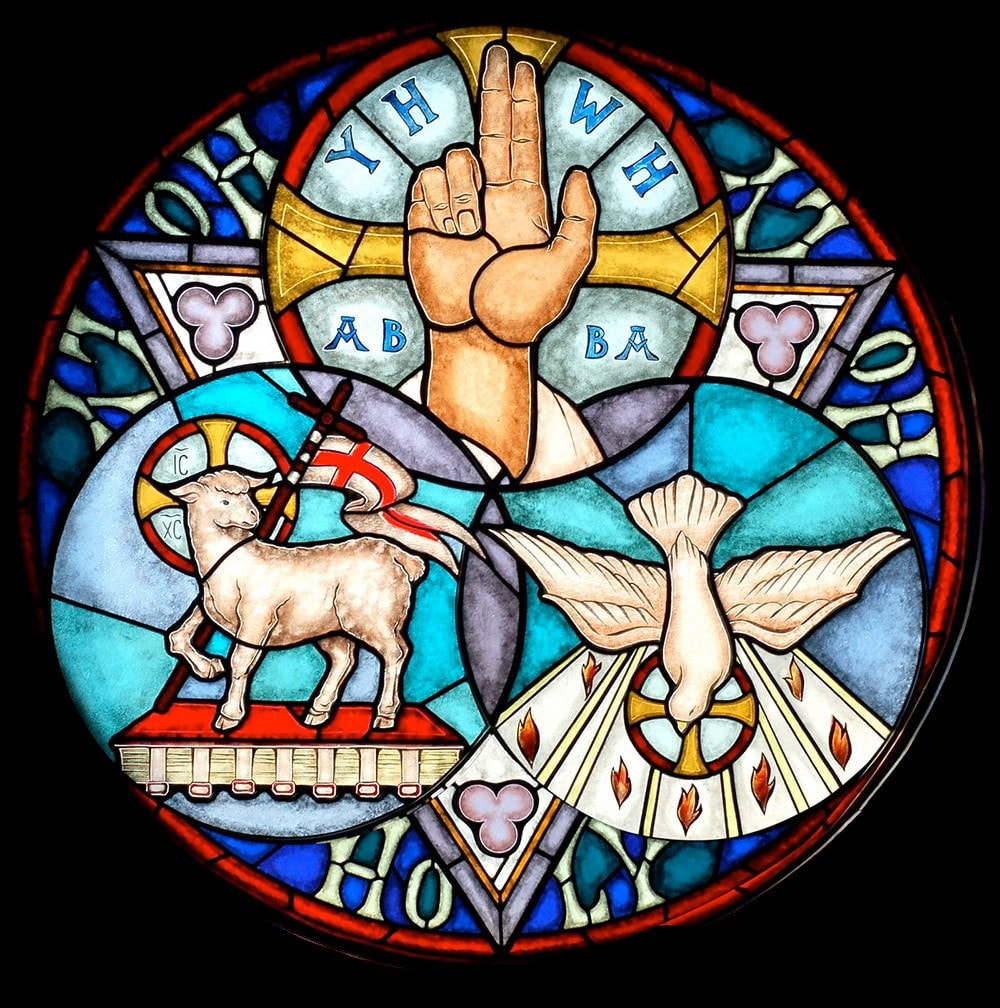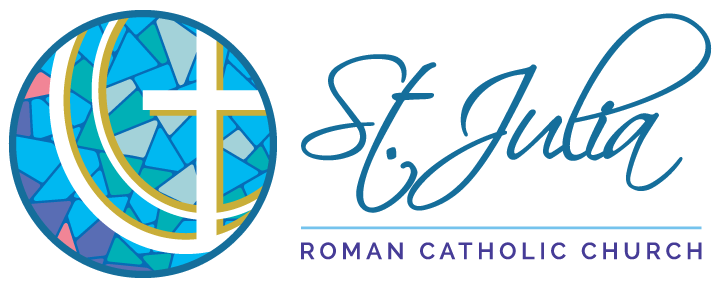|
Dear parishioners and friends of St. Julia Parish,
What does it mean to love, to share love, and to be loved? In his letter to the Romans, St. Paul told the early church and each of us today that: “The love of God has been poured out into our hearts through the Holy Spirit that has been given to us.” Love. The gift of love that Paul described was “poured” into our hearts. It is like an endless stream. It is plentiful and life enhancing. From eternity, God must be self-communicating love. This in turn means that God possesses his identity only in a distinction within himself between lover and beloved, who are both one in love. It is here that we have a starting point for the understanding of the Trinity, and one that proceeds not from knowledge in the word but from self-communicating love. The Catechism of the Catholic Church tells us: “The mystery of the Most Holy Trinity is the central mystery of Christian faith and life. It is the mystery of God in Himself. It is, therefore, the source of all the other mysteries of faith, the light that enlightens them. It is the most fundamental and essential teaching in the ‘hierarchy of the truths of faith.”’ (CCC No. 234) This means that the love that exists among the Three Persons in One God should also be present in us. So, what is this love that is shared among the Three Persons of the Trinity? This love is a movement of giving and receiving, and in this movement there are three distinct relations. The Father is purely a giver and sender of love; the Son receives life, glory, and power from the Father, which he receives to pass on; in the Spirit the faithful receive the gift of the Father through the Son, so that we may share in this gift. Thus, in the Father, loves exists as pure source, that pours itself out. Though the three Persons of the Trinity have different roles in the salvation history of humankind, they are equally one and are bound by love. We may not be able to understand the mystery of the Blessed Trinity, but we can feel the love that is a fruit of their oneness. The Trinity is the best example of a perfect and loving community. So how do we bring the love of the trinity into our world? The love of the Trinity must be felt in our families, in our communities, in our country, and in fact the whole world. The Trinity reveals to us that love is at the essence of each person’s calling and our vocations, whether that is to marriage, the single life or to the priesthood and religious life. These are the deepest ways of living out that love. Therefore, we must ask if we are imaging the Trinity in our loves: in our marriages and families; in our places of work; in our schools, in our communities. Are we becoming persons of communion? This notion of communion is integral to the Trinity. If this happens, then the world that the Father has created, and the Son has redeemed, and the Spirit has guided, will be very similar to the Trinity who is Father, Son, and Holy Spirit. Where there is love there is community; there is connectedness. That’s what Trinity Sunday is all about. And once again, that is where we fit in. We can recognize that we are designed for those things, because we are made in the image and likeness of God. Trinity Sunday reminds us that image, that likeness, finds it’s oneness, it’s wholeness, it’s completeness in the revelation that our God is one God in three persons: Father, Son and Holy Spirit. All too often we come to Trinity Sunday looking for an answer to a mystery, as if we are looking for the answer to a riddle. We come looking for an explanation on how this one God in three persons is possible. As finite, human beings, we will never arrive at that answer. We can turn to analogies, such as St. Patrick and the clover, and yet every analogy falls short. Trinity Sunday calls us not to focus on the “how” but rather on the “who” that is revealed today. Our God, this one God in three persons, tells us their existence is based on being in relationship to one another. The depth of love uniting Father, Son and Spirit makes it impossible to consider each person independently. We find then that every striving of our souls for union, every reaching for companionship, every urge for a hug and embrace, every act of love gives testimony to the Trinity. In our world of smart phones, emails, tweeting, and texting, we are still looking for connection and companionship. We who are made in the image and likeness of God find a need within ourselves to mirror our origins. On this Trinity Sunday, the Church calls us to meditate on the mystery of the Most Holy Trinity. At the same time, it presents us with an opportunity to gain insight into ourselves, to see what motivates us, and how we were created to live and love. May God continue to bless each of you and those that you love. Fr. Greg Comments are closed.
|
AuthorFrom Our Pastor Archives
July 2024
|
|
251 Glenridge Ave.
St. Catharines, ON L2T 3Y7 |
©2021 St. Julia Parish
|


